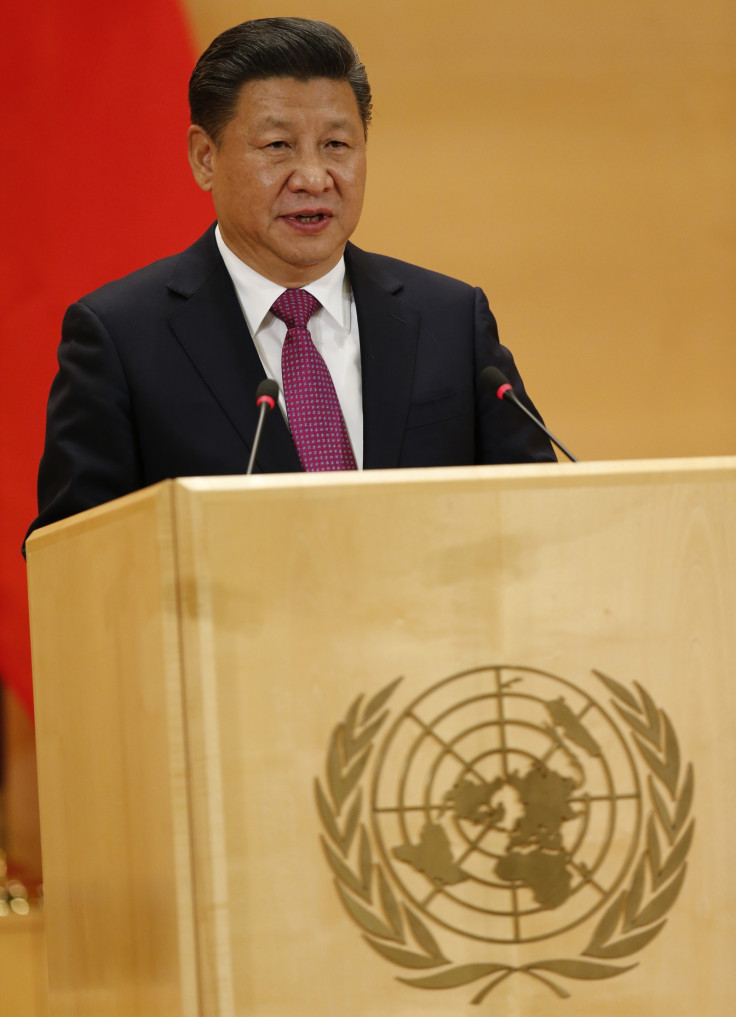China's Silk Road initiative off to a bumpy start due to the UK and the EU's reluctance
Initiative not clear on public procurement and social and environmental standards. it is claimed.
China's Silk Road initiative may have taken off but it seems the journey may be slightly bumpy. Chinese President Xi Jinping declared the event a success after signing deals with 68 countries to jointly develop infrastructure along the new Silk Road trade routes.
In addition, 30 countries directly involved in the initiative, have endorsed a joint communique agreeing to work together to build key infrastructure under the belt and road umbrella.
Key absentees to the communique include the European Union, India, Australia and the UK. Some of the countries decided against signing the trade statement at the summit, saying that the initiative was not clear on public procurement and social and environmental standards.
EU concerns not included in communique
The Guardian said it understands most of the EU members, decided against supporting China's trade statement because a series of concerns they had raised with the Chinese government were not incorporated into the draft text.
It said a public summary of the EU's position on the Belt and Road initiative, which was published ahead of the forum, suggested members wanted guarantees that projects would be economically and environmentally sustainable and subject to fair tendering processes.
One EU diplomat told The Guardian: "We made clear that, for Europe, the Belt and Road initiative can only be a success if it's based on transparency and co-ownership. Apparently to Chinese surprise, the EU was united on this."
European Commission Vice President Jyrki Katainen told Reuters that EU member states would not be signing ministerial statements connected to the summit, but he did try and downplay the significance.
"The European Commission, which has a mandate, who has the capacity to negotiate on behalf of member states on trade-related issues, we were not given a chance to negotiate on the text, " he said.
"But it's not an issue. The event, what Chinese authorities have organised here, and the joint understanding of what should be done and what must be done, is very positive."
Similarly, Australian Trade Minister Steven Ciobo said that while Canberra was receptive to exploring commercial opportunities that the initiative offered, any decisions would remain incumbent on national interest.
India however had another axe to grind. It refused to send an official delegation to Beijing, over China's decision to develop a $57bn trade corridor through Pakistan that also crosses the disputed territory of Kashmir.
A spokesman for the foreign minister told Reuters there were also concerns over the host countries taking on too much debt to fund the Silk Road initiative.
Modern Silk Road initiative
China had hoped for the multi-billion infrastructure initiative, dubbed the modern Silk Road, which involves building pipelines and a port in Pakistan, bridges in Bangladesh and railways to Russia - will kickstart a new era of trade and development.
It had hoped that all the EU member states and the other countries attending the conference will support the statement on trade prepared by Beijing to mark the end of the summit.
The summit explored Xi's Belt and Road initiative which is aimed at reviving the ancient trade links between China, Asia, Africa and Europe. The countries along the routes account for about 40% of the world's gross domestic product.
Xi first unveiled the concept four years ago, but many have viewed it as an attempt to promote Chinese influence globally.
Noticeably absent from the two-day summit on the initiative were leaders of most of the major western powers, including US President Donald Trump, Germany's Angela Merkel and UK Prime Minister Theresa May.
Beijing has scheduled 2019 for the next summit.
A UK government spokesperson told The Guardian that since the UK had not participated in the trade panel related to the statement, it would not have been expected to sign up to the outcomes related to the session.
"The UK welcomes the Belt and Road initiative, which has the potential to promote and develop economic growth, the spokesperson said. UK Chancellor Philip Hammond had participated in the session involving finance and the UK had signed up to the principles related to that event.
30 countries sign the joint communique

South China Morning Post reported that 30 countries directly involved in the initiative have endorsed the joint communique, agreeing to promote a rules-based, non-discriminatory trading system with the World Trade Organization at its core and to oppose protectionism.
The communique said the countries would promote "practical cooperation on roads, railways, ports, maritime and inland water transport, aviation, energy pipelines, electricity and telecommunications" to boost growth and work on a long-term stable and sustainable financial system.
China in backing the initiative, has promised to inject at least $113bn (£88bn) in extra funding.
In the communique, China said it would promote partnerships with Europe, Asia, Africa and South America. No reference was made to the US but the statement said its welcome extended to "other regions."
Chinese media were quick to lambast critics. "Some countries seem obsessed with the idea of containment or game-playing, and seem unable to see the truth in the mist of history, the Beijing Youth Daily editorial said.
He Jingtong, a business professor at Nankai University in Tianjin also dismissed allegations of Beijing "practising neo-colonialism."
He said: "I think none of this holds water. If you look at history, tell me when has China been a colonial power? If it hasn't been in the past, why should it now?"
© Copyright IBTimes 2025. All rights reserved.






















